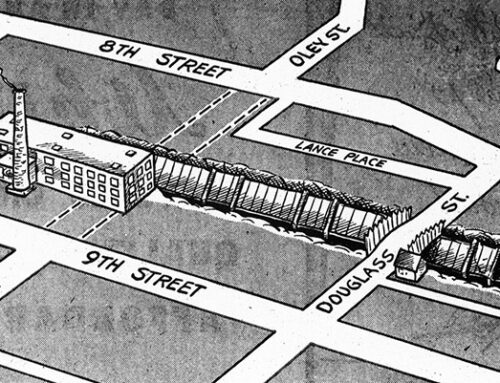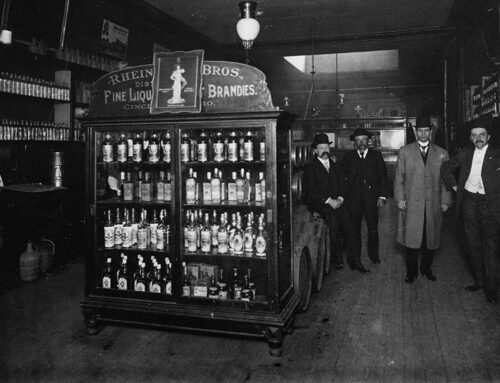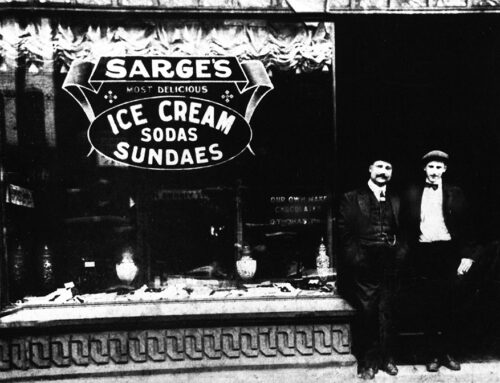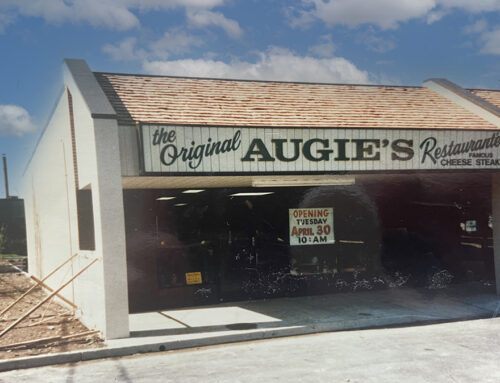John D. Mishler was a prominent figure in theater, business, civic leadership, philanthropy, and journalism, with his influence extending across multiple fields that shaped both the cultural and social landscape of Reading and Berks County. He was born on April 28, 1847, in Newmanstown, Lebanon County, Pennsylvania. Shortly after his birth, his family moved to Reading where he attended school until the age of seventeen. At that point, he began working for John S. Pearson & Company, starting as a delivery boy with a salary of $75 a year. He quickly demonstrated his determination and business insight, taking on more responsibilities.
Mishler visited Europe at the age of twenty. His letters from this trip, describing his impressions of European scenes and affairs, were widely read and published in various newspapers across Pennsylvania including the “Berks and Schuylkill Journal.” This European journey played a significant role in broadening his perspective, providing him with valuable experience that influenced his later business and civic activities. His return from such travels was celebrated by the community, marking him as a man of wide influence and respect in both business and social circles. Mishler also contributed to local newspapers, penning a weekly column in the “Reading Times” titled “The Man About Town.”

At the age of twenty-one, Mishler founded his own dry goods store, known as the “Globe Store,” located at 533 -535 Penn Street. His entrepreneurial spirit led to the growth of his business. He continued managing the business until 1874 when the firm of Dives, Pomeroy & Stewart purchased his business.
Below: The original Globe Building, 533-535 Penn Street.

In 1871, Mishler married Louisa C. Halbach, and they had three children: Rebecca Marie, Maud Viola, and J. Boyd Mishler. His family resided at 417 Green Terrace in Reading.
Mishler’s theatrical career began in 1872, when he took over the management of the theater which was built by his father in 1872 and was formally opened on October 1 of that year. This theater, which was located at 533-535 Penn Street, was named the Academy of Music, the first modern theater in this State outside of Philadelphia and Pittsburgh, and as its manager until 1886, Mr. Mishler won extensive fame. The entrance to the theatre was through a wide stairway next to the dry goods store on Penn Street. The theater itself occupied the second floor of the building, with the ground floor used by merchants such as wine dealers, piano sellers, and a drug store.
Below: Academy of Music, located on the upper stories of the Globe Store at 533-535 Penn, was Reading’s first real theater. It had 1,000 iron seats “fixed to the floor” and elegant trappings throughout. The theatre offered first-rate attractions for most of its existence — from 1872 to 1886.

The Penn Street Academy of Music building became inadequate to accommodate the large crowds which flocked to the attractions shown, so in 1886 the Academy of Music moved to a building formerly occupied by a Masonic Temple. This building was located on North Sixth Street near Walnut Street in Reading, PA. It was built in the 1870s as a market, with a Masonic Temple on its upper floors. The building was converted into the new Academy of Music after being purchased by James Nolan and John D. Mishler.
Mishler held his first show there Oct. 18, 1886. Year after year, Mishler held the lease and continued to bring such stars to Reading as Mademoiselle Modjeska, Joe Jefferson, Julia Marlow, E. H. Sothern, Maude Adams, John Drew, Maxime Elliott. Ethel Barrymore, George M. Cohan, The Dolly Sisters and Blanche Ring. A tradition also grow up in theatrical circles because many Broadway plays had their tryouts here. The theory was: “If it goes in Reading, it will go on Broadway.” Years of theatrical experience by Reading audiences, under Mishler’s guidance, made this city a tough criterion.
Then in 1907, Mishler suffered a severe blow. The Nolan interests, who held the majority stock in the building, gave the lease to New York producers, Kerr and Appel. Mishler was out. Thereafter, John D. Mishler’s sole interests and income came from the bill posting business he had established with his son, Boyd. His Academy of Music became, in 1917, the Rajah Theater. The Rajah Shriners purchased it to use the building for various activities including vaudeville, motion pictures, and live appearances. The auditorium was rebuilt in 1921 after a fire destroyed most of the facility.
Below: On January 23, 1917, a fire destroyed the old Globe Store” building at 533-535 Penn Street. The building was razed and replaced with a new structure in 1923 known as the Sharp building.

Mishler’s civic and social accomplishments are “too many to mention” due to his extensive involvement in numerous causes and community projects throughout his life. What follows are a few of his accomplishments.
Mishler served as the general secretary of the Associated Charities in Reading from 1902 to 1909. Additionally, he founded the Berks County Society for the Prevention of Cruelty to Animals in 1891, demonstrating his dedication to the welfare of animals. He also initiated the “Pingree Potato Plan,” which allowed poor people in Reading to cultivate potatoes, encouraging self-sufficiency.
His involvement in the civic life of Reading, and his public speeches and efforts helped shape many of the city’s developments. His work for the betterment of the community through various projects, including the Berkshire Hotel, solidified his standing as a prominent civic leader.
His civic activities extended far into charitable works, and he was well known for his philanthropy, particularly in Reading, where his efforts benefited the community on various levels, such as aiding the city’s hospitals and promoting social welfare projects.
Throughout his life, Mishler was actively engaged in supporting the poor. He entertained poor children, hosted charity events, and even started a Christmas donation campaign in 1887, which raised significant funds over the years for the needy in Reading.
The providing of pleasure or entertainment for poor or unfortunate children had always been one of Mr. Mishler’s greatest pleasures. One of the most noteworthy instances occurred on December 25, 1892 when Mr. Mishler then gave a special performance of “Lost in New York” to a free house at the Academy, his guests being 2,000 poor children.
Mishler retired from active business life in 1907 but remained an influential figure in Reading through his involvement in various public and charitable causes. His memoir, Mishler’s Memoirs, published in 1907, encapsulates his life and work, and he shared this record with close friends.
John D. Mishler’s philosophy in life was simple yet profound, centered around kindness, generosity, and making a positive impact on the world. He believed in the importance of helping others, particularly in times of need, and valued the emotional rewards of offering sympathy and encouragement. Mishler once stated:
“Just to be kind and good-natured; just to do the little good one can, to sympathize with one’s friends, and to give them a lift when they’re down—to leave the world a little bit better than one found it, that’s all I think a man need aim at.”
He also said: “If only half the nice things said after people are dead were told while they are alive, how much more happiness there would be in the world.”
Ever looking toward the future, a plan he drafted in April 1893 was for a drive along the top of Mt. Penn from the flagpole to McKnight’s Gap. He never was able to get the job under way, although the city was
John D. Mishler, familiarly known to thousands of Reading people as “Uncle John,” died of a heart attack on Monday, May 13, 1929. Mishler was one of the most prominent and familiar figures in Reading at the time of his death. His activities covered a large range of interests, and he numbered his friends by the hundreds. He had friends and acquaintances from all walks of life. His passing was a real loss to Reading. The Skyline boulevard, which follows his 1893 plan of a summit highway, was built by “make-work” labor in the 1930s.
Below: John D. Mishler.







Leave A Comment